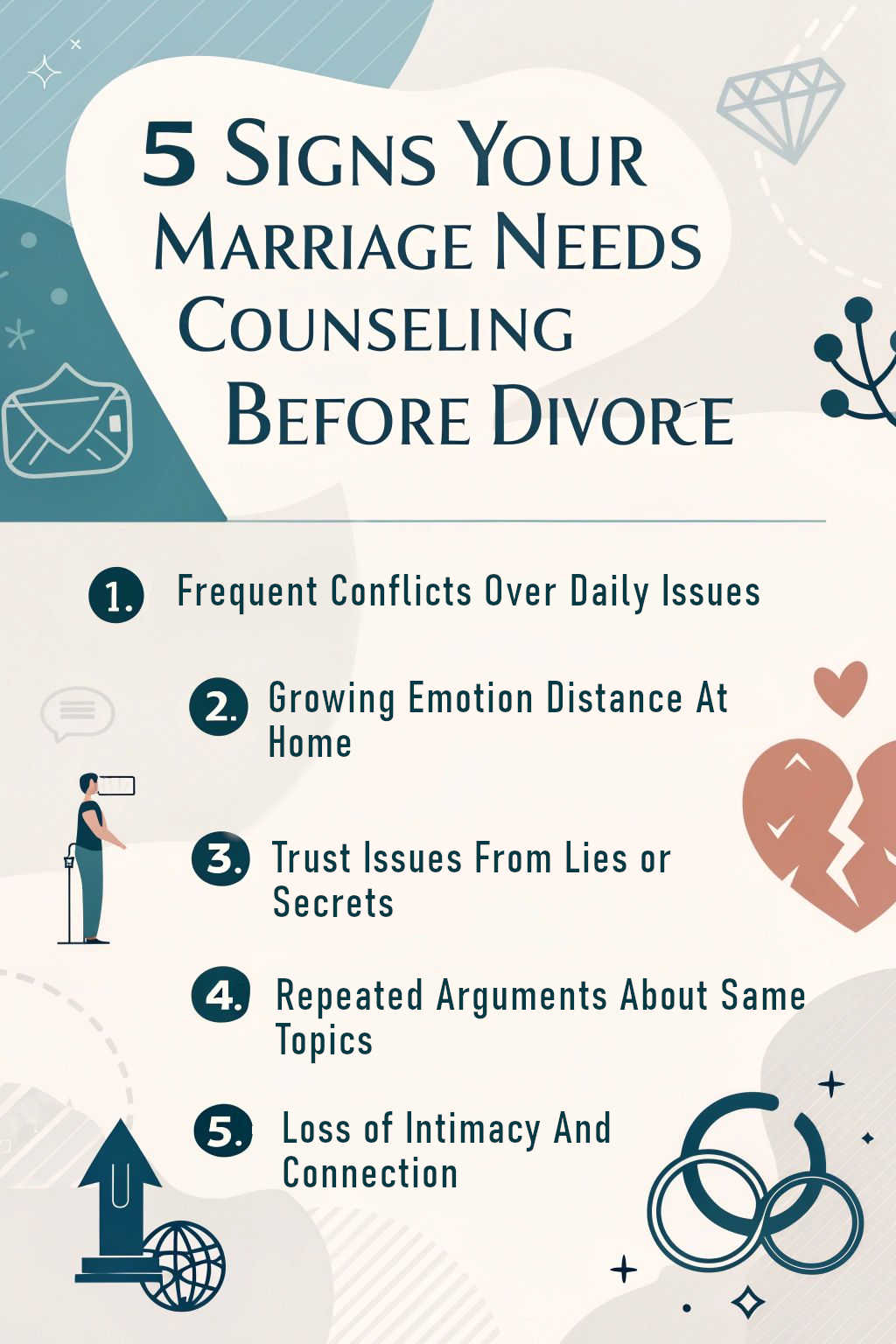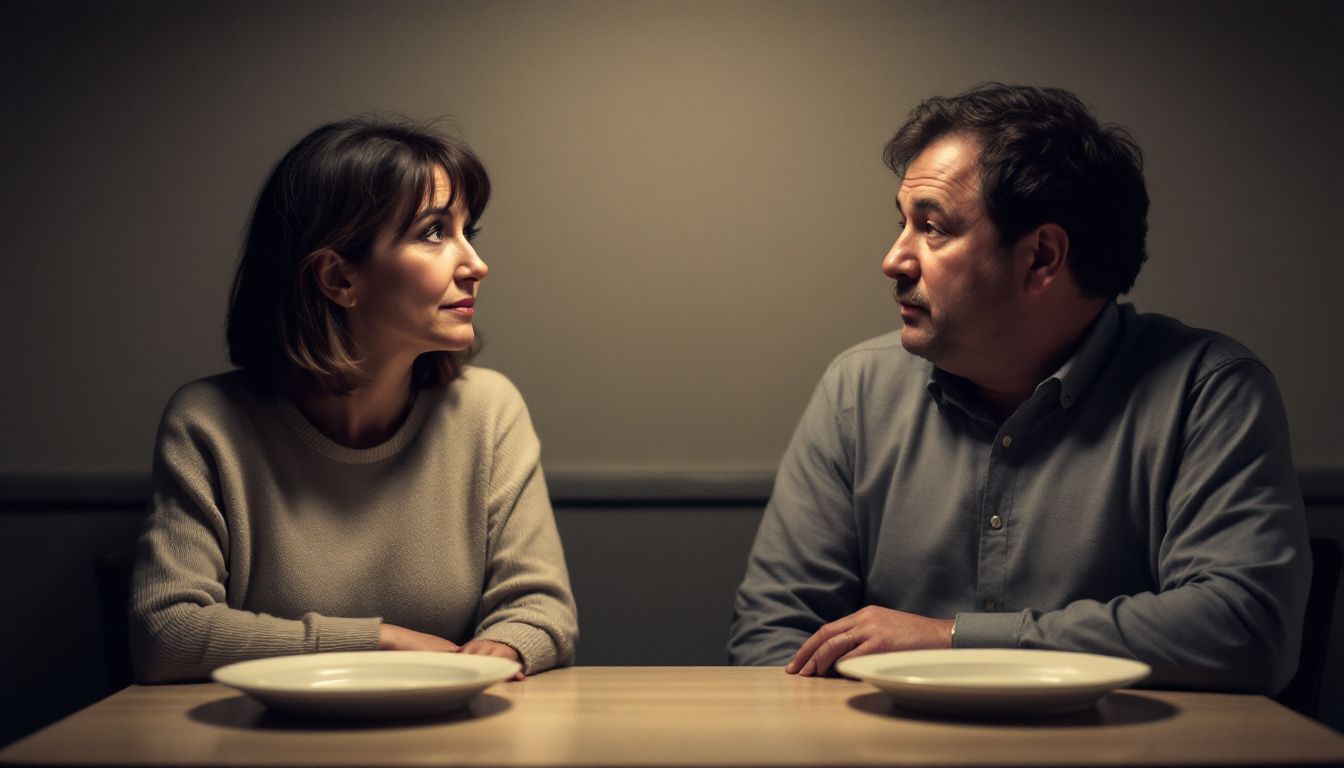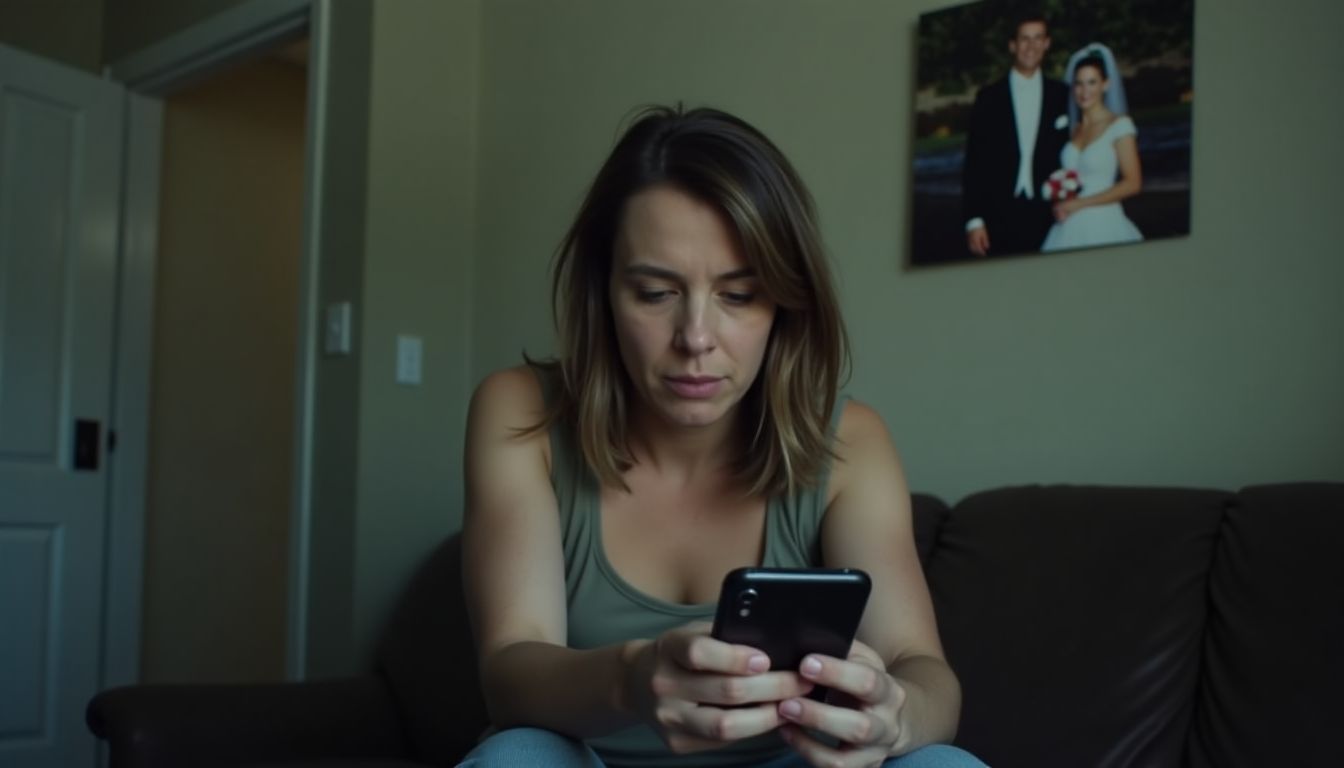5 Signs Your Marriage Needs Counseling Before Divorce
Marriage troubles can shake any couple’s world – research shows 40% of first marriages end in divorce. As a marriage counselor who has sat with hundreds of couples in their darkest moments, I’ve seen both the heartache and the healing that comes with relationship struggles.
Let me share five clear warning signs that tell you it’s time to get professional help before thinking about divorce. With caring support and tools to rebuild trust, your marriage can grow stronger through tough times.

Communication Breakdown in Marriage
Poor communication creates a deep wedge between married couples, leading to frequent misunderstandings and heated fights. I notice many couples struggle to express their feelings openly, which makes them drift apart and feel lonely in their marriage.
Common Causes of Frequent Arguments
Money troubles stand as a major trigger for marriage fights. My experience as a marriage counselor shows financial stress creates tension between couples daily. Different spending habits lead to anger and resentment.
One spouse might save while the other spends freely. Bills pile up, debts grow, and blame starts to fly. The lack of clear financial goals often sparks heated debates about basic needs versus wants.
Parenting styles cause constant friction in many marriages. Parents clash over discipline methods, screen time limits, or bedtime rules. These conflicts stem from different family values and childhood experiences.
The stress from co-parenting disagreements affects mental health and creates emotional distance. A clinical psychologist can help couples develop problem-solving skills for these challenges.
Active listening techniques prove vital in resolving parenting disputes before they damage the marriage bond.
The Importance of Meaningful Conversations
Meaningful conversations create strong bonds in marriage. I noticed this truth during my years as a marriage therapist. Deep talks help couples share their thoughts, fears, and dreams openly.
Many couples tell me they feel closer after having real talks about their feelings. These chats build empathy and trust between partners. A simple talk can turn into a chance to understand each other better.
Physical intimacy starts with emotional connection through good talks. My experience shows that couples who talk well tend to stay together longer. Regular check-ins about daily life matter just as much as big relationship talks.
Marriage counseling teaches partners how to listen and respond with care. Clear communication helps solve problems before they grow too big. Couples learn to express their needs without blame or defensiveness.
Good talks lead to better romance and stronger emotional bonds.

Emotional Distance between Spouses
I notice married couples drift apart like ships in the night – they share a home but live separate lives. Many couples lose their spark through small daily choices that create walls between them, such as avoiding eye contact during dinner or sleeping at different times.
The Impact of Feeling Indifferent
Emotional indifference acts like a silent poison in marriages. My experience as a marriage therapist shows that couples often drift apart through small, daily acts of disconnection.
Partners stop sharing their daily stories, skip their goodnight kisses, or fail to notice each other’s presence. This emotional numbness creates a gap that grows wider with each passing day.
Physical distance follows emotional detachment in most cases. Couples sleep in separate rooms, eat at different times, or spend weekends apart without missing each other. The lack of emotional connection leads to reduced sexual intimacy and fewer moments of physical touch.
These signs point to deeper relationship issues that need professional help through couples therapy. The next crucial aspect relates to the consequences of emotional withdrawal in marriages….
Consequences of Emotional Withdrawal
I notice many couples struggle with emotional withdrawal in my practice as a relationship therapist. Partners who pull away from each other create deep wounds that can last for years.
The lack of emotional support leads to feelings of rejection, loneliness, and anxiety. My clients often describe feeling like strangers living under the same roof – they share space but not their hearts.
This pattern damages trust and makes both partners feel isolated, even while sleeping next to each other every night.
The impact of emotional withdrawal spreads far beyond the marriage itself. Kids pick up on the cold atmosphere between their parents and may blame themselves for the family’s problems.
Work performance often drops as people struggle to focus through their pain. Physical health takes a hit too – stress from a distant marriage can cause headaches, stomach issues, and trouble sleeping.
I’ve seen countless couples where one partner’s withdrawal pushed the other toward substance abuse or unhealthy coping methods to numb their hurt.

Trust Issues that Lead to Marital Problems
Trust issues can destroy a marriage faster than any other problem. I see many couples in my practice who struggle with broken promises, secret bank accounts, or hidden social media relationships that create deep wounds in their marriage.
The Effects of Lying and Keeping Secrets
Lies and secrets create deep wounds in marriages. I’ve seen countless couples struggle with broken trust after discovering hidden bank accounts, secret phone calls, or private social media messages.
These deceptions often start small but grow into major problems that damage the marriage’s foundation. A marriage counselor helped me understand how lying breaks down emotional safety between partners.
People hide things from their spouses for many reasons – shame about addiction, fear of judgment, or protecting someone else’s secret. My experience as a family therapist shows that secrets lead to anxiety, depression, and feelings of betrayal.
The spouse who keeps secrets lives with constant stress, while their partner senses something wrong but can’t identify the cause. This pattern creates emotional distance and makes both people feel alone in their marriage.
How Infidelity Damages Trust
Cheating breaks the core foundation of marriage – trust. My experience as a marriage counselor shows that infidelity creates deep emotional scars which often take years to heal. Partners who face betrayal struggle with anxiety, depression, and constant suspicion.
The damage spreads beyond the affair itself into every aspect of daily life.
Physical or emotional affairs destroy the safety couples need in their relationship. The betrayed spouse questions everything – from casual text messages to work meetings. Trust issues lead many couples to seek marriage therapy or family counseling.
The healing process requires both partners to rebuild honesty through open communication and consistent actions. Marriage counselors help create a safe space for couples to process trauma and rebuild their bond.

Persistent Conflicts and Their Toll on Marriage
Unresolved fights create deep scars in marriages that need immediate attention from a marriage and family therapist. I see many couples who struggle with the same arguments over money, parenting plan, and substance abuse disorder – these issues drain their emotional energy and push them closer to divorce.
Analyzing Repeated Arguments
Repeated arguments create deep wounds in marriages that need immediate attention. My experience as a marriage therapist shows that couples often get stuck in harmful argument patterns.
- Couples argue about the same topics because they lack proper communication skills. Each partner stays fixed in their position without trying to understand the other’s point of view.
- Money problems spark frequent fights between spouses. Financial stress leads to blame, criticism, and defensive behaviors that damage the relationship.
- Parenting differences cause regular conflicts in marriages. Parents disagree on discipline styles, screen time limits, or bedtime routines for their children.
- Past hurts resurface during current arguments without resolution. Old emotional wounds keep reopening because couples never fully addressed the original issues.
- Different values and beliefs fuel ongoing disagreements. Partners struggle to accept core differences in religion, politics, or lifestyle choices.
- Poor listening habits make arguments worse over time. Partners interrupt each other, make assumptions, or tune out during important discussions.
- Stress from work or family creates a cycle of tension at home. Partners take out their frustrations on each other instead of working as a team.
- Substance abuse problems lead to repeated fights about trust and safety. Partners feel hurt and angry when addiction affects their daily life together.
- Power struggles develop as both partners try to control outcomes. Neither spouse wants to compromise or admit they might be wrong.
- Lack of emotional support causes partners to feel alone and misunderstood. They argue because their emotional needs remain unmet in the relationship.
Strategies to Resolve Long-standing Issues
Marriage problems need quick solutions before they grow bigger. I have seen many couples fix their issues through simple yet effective steps.
- Talk with a couples therapist to get professional guidance. A trained counselor helps create a safe space for both partners to share feelings openly.
- Schedule weekly check-ins at home to discuss problems calmly. These regular talks prevent small issues from becoming major conflicts.
- Practice active listening skills during conversations. Looking at your partner and repeating their words shows you care about their feelings.
- Set clear boundaries around topics that cause frequent fights. Clear rules help avoid triggering past hurts or painful memories.
- Focus on solving one problem at a time through talk therapy. Taking small steps makes big issues feel less scary to tackle.
- Write down feelings in a shared journal between sessions. This helps track progress and spots patterns in arguments.
- Learn healthy ways to express anger without yelling or blame. Deep breaths and “I feel” statements keep discussions productive.
- Make time for positive activities together outside of problem-solving. Fun dates rebuild emotional connections damaged by conflict.
- Create a code word to pause heated moments before they escalate. This signal gives both partners time to cool down and think clearly.
- Stay committed to the process even on hard days. Change takes time, but small improvements add up to big results.

Decline in Marital Intimacy
Physical intimacy creates a strong bond between married couples, and its absence signals deeper problems in the relationship. I notice many couples lose their desire for physical closeness because they feel disconnected from their partners on an emotional level.
Understanding the Lack of Physical Connection
I notice many couples lose their physical spark over time. A lack of cuddle time, intimate moments, and basic touch creates a deep void in romantic relationships. The absence of physical closeness often stems from stress, work pressure, or unresolved emotional issues.
Many couples stop showing affection through simple gestures like holding hands or giving quick hugs – these small actions matter more than most people realize.
My experience as a counselor shows that addiction to drugs, alcohol, or pornography can destroy physical intimacy between spouses. The American Psychological Association reports that couples who maintain regular physical contact feel more connected and supported.
The lack of touch leads to feelings of insecurity, loneliness, and emotional distance. Partners need to address these issues through open communications and couples counseling before considering divorce.
A traumatic event or dysfunctional family patterns may require professional help to rebuild physical bonds.
The Importance of Emotional Connectivity
Emotional bonds create the foundation of a strong marriage. My experience as TheTeenDoc shows that couples need deep emotional ties to stay happy together. Physical touch, kind words, and shared activities build these vital connections.
Spouses must feel safe sharing their feelings, dreams, and fears with each other. This openness helps create trust and understanding between partners.
Strong emotional ties lead to better spousal support and confidence in the relationship. Partners who stay emotionally connected handle stress better and solve problems as a team. They show care through small daily actions like holding hands or sending sweet messages.
Making time for meaningful talks helps keep the emotional spark alive. The decline in emotional connection often signals deeper marriage troubles that need attention – which brings us to our next topic about trust issues in relationships.

Conclusion
Marriage counseling helps couples find their way back to love and trust. Professional guidance creates a safe space for partners to heal deep wounds and rebuild connections. Seeking help early saves marriages from reaching the point of no return.
Talkspace and other therapy options give couples the tools to restore their relationship’s happiness. The right counselor makes all the difference in turning marital struggles into opportunities for growth and renewed commitment.
FAQs
1. What are clear signs my marriage needs counseling?
Dr. O explains that constant fighting, lack of love, and poor communication point to a need for marriage counseling. These issues affect your happiness and emotions deeply.
2. Can counseling really save a marriage before divorce?
Yes! Professional psychology-based counseling helps many couples work through problems and avoid breaking up. Studies show couples who try counseling have better chances of saving their marriage.
3. How does marriage trouble affect kids?
Children feel the stress of parent conflicts. The best interests of the children should guide decisions about getting help through counseling or moving toward divorce.
4. Is online counseling through platforms like Talkspace effective?
Online counseling offers a good option for busy couples who want help. Many find it easier to open up from home.
5. Should we try counseling before discussing child custody?
Marriage counseling helps parents work through parenthood issues and emotions before talking about serious matters like child support and custody. This creates a better path forward for everyone.



